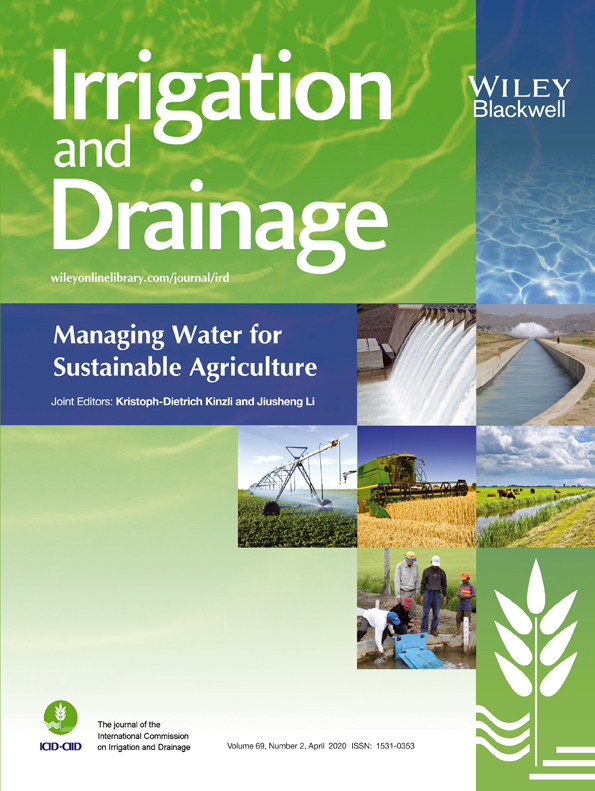CHINA'S PLANS AND ACTION ON IMPLEMENTATION OF ICID VISION 2030†
Abstract
enWe are living in a changing world. The sustainable development goals (SDGs) launched by the United Nations highlight that water is closely linked to a number of key global challenges. Agricultural water management is vital to food security and sustainable rural development. The International Commission on Irrigation and Drainage (ICID) has realigned its vision and dedicated itself to a mission to support sustainable rural development by formulating and implementing the vision of ICID for 2030. As a member country of ICID, China, with the largest population and agricultural production, puts great importance on improving agricultural water management for achieving food security under water shortage and a growing demand for agricultural production. China has been working at two levels to enhance agricultural water management. At on-farm level China has worked out plans for developing high-standard farmland by highlighting integrated water and land management; at system level China is working on plans for the modernization of irrigation and drainage systems by upgrading systems and applying information (IT) and automation technologies. This paper summarizes the objectives, tasks and measures for developing high-standard farmland in China. © 2020 John Wiley & Sons, Ltd.
Résumé
frNous vivons dans un monde en mutation. Les objectifs de développement durable (ODD) lancés par les Nations Unies soulignent que l'eau est étroitement liée à un certain nombre de défis mondiaux clés. La gestion de l'eau agricole est essentielle à la sécurité alimentaire et au développement rural durable. La Commission internationale de l'irrigation et du drainage (CIID) a redéfini sa vision et s'est consacrée à une mission de soutien au développement rural durable en formulant et en mettant en œuvre la vision de la CIID à l'horizon 2030. En tant que pays membre de la CIID, la Chine avec sa plus nombreuse population et large production agricole, attache une grande importance à l'amélioration de la gestion de l'eau agricole afin d'assurer la sécurité alimentaire face à la pénurie d'eau et à la demande croissante de production agricole. La Chine a travaillé à deux niveaux pour améliorer la gestion de l'eau agricole. Au niveau de l'exploitation, la Chine a élaboré des plans pour développer des terres agricoles de qualité supérieure en mettant l'accent sur la gestion intégrée de l'eau et des terres. Au niveau du système, la Chine travaille sur des plans de modernisation des systèmes d'irrigation et de drainage en améliorant les systèmes et en appliquant les technologies d'information et d'automatisation (Ministère des ressources en eau, République populaire de Chine. 2019). Ce document résume les objectifs, les tâches et les mesures pour développer des terres agricoles de haut standard en Chine. © 2020 John Wiley & Sons, Ltd.




